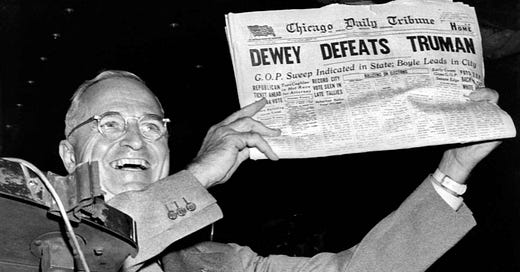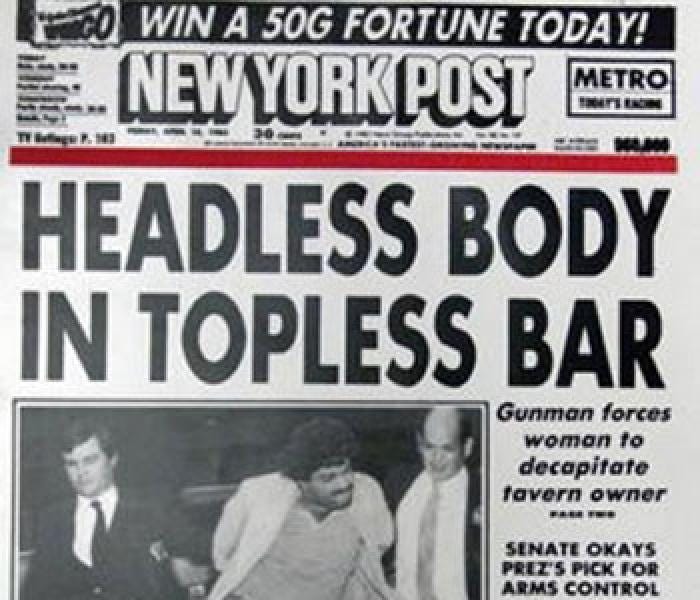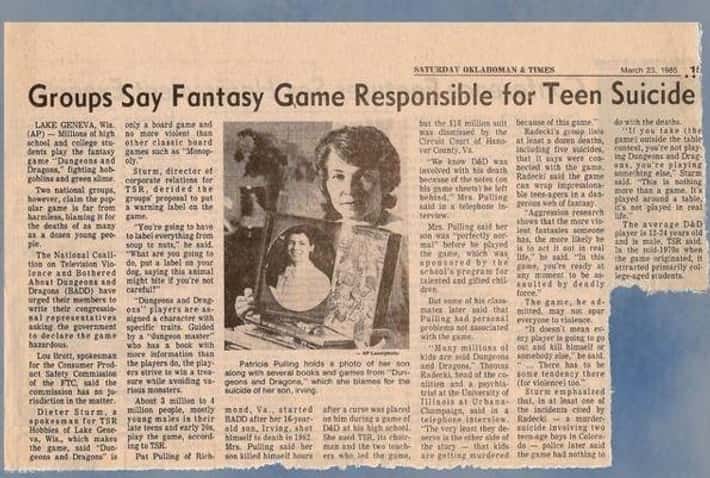Headline Spews
Why are the emotionally-charged infants on the far left and far right in the USA so equally repugnant? The presses aren't ever held on the internets.
There was a time not so long ago when newspaper editors required accuracy from reporters. Multiple sources, exhaustive historical research, and continual fact-checking were part of the scientific method for the determination of truth and accountability in journalistic efforts prior to going to print. A subtle chuckle was had, and a subtle charm was experienced, by all on November 3, 1948 when The Chicago Daily Tribune (later The Chicago Tribune) had its early edition’s headline erroneously exclaiming defeat for the incumbent, President Harry S. Truman.
That the ensuing photograph of Truman hoisting that famed front page became a shrewd reminder of the integrity (occasionally found on this Substack account) necessary for the fourth estate to maintain, and of the need to follow the idiomatic doctrine of ‘Halt the presses!’ when a particular story’s facts were in error, are not even afterthoughts in this modern era of one continuous news cycle.
They are, in fact, forgotten.
The horror that this young Israeli woman has experienced in the past two years, as told by The New York Post, fits snugly prioritized above a story about digestive issues for MAGA zealots.
These are some of the current must reads according to MSNBC: no need to open the actual articles when the farcically-biased headlines trigger reactions that will create impassioned opinions suitable for gala events and yoga retreats with like-minded, similarly informed leftists.
Not to be upstaged, Fox News (italicized like the others to add much-needed legitimacy via style guide regulations for newspapers) believes a daily count on Nike’s silence over a certain issue few truly care about supersedes the equally vacuous tale of drunk influencers/revelers forced into the waters of Miami mere yards from shore as if they had survived The Titanic.
For CNN, this is news: Japan’s lack of procreation and, well, you can judge the other caption yourselves.
There were salient reasons for halting the presses. Foremost among them, historically, was editorial rectitude. The legal consideration of libel was certainly in play, as were reputations, in addition to the costs associated with reprints. Jobs were on the line, too. This compendium of factors led editors and publishers to maintain quite high standards for their writers and for themselves: the archaic notion, long since eroded, of responsibly informing the public was paramount.
And now?
The world is deluged with rush-to-judgment, inaccurate storylines immediately propagated with the press of a button. Celebrity gossip and product placements, once antagonistically referred to as mere click-bait in the early fractions of this modern technological age, are now accepted and endorsed as legitimate news. Many independent journalists, the ones actually covering and uncovering important events in the world, are excluded from the global media conglomerates and exist as blackballed outliers.
Worst of all, there is no accumulation of intellectual maturity by readers. Strike that. Not readers, scanners. Scanners of headlines preying upon their wanton desires to be proven correct and be validated.
“I knew that Trump was a son of a bitch!”
“See? Hunter Biden is a cokehead. Says it right here.”
Extreme examples? Maybe, but probably not.
The already cajoled don’t require much cajoling when the titles of articles and their provocative subtitles enflame childlike emotions irrespective of political leanings in one direction or another.
It should frighten society that few scanners today can look at a headline from The NY Post in 1983 about an eviscerated corpse found in a strip joint and not laugh at its sardonic depravity. At least this publication has continued with winning humor on the front page despite its timely right-wing rabidity.
Who notices online retractions? Who notices the removal of an imprecise article?
It’s not so much even finding, or not finding, the corrections as it is having already moved on to some new and flavorful narrative without regard for the truth that is direly problematic. With the headlines and descriptions imbibed, the scanners are willingly captivated by whatever their thumbs scroll to next.
Maybe there are interesting and truthful articles on the aforementioned news sources by honest, unbiased journalists, but they are not being read.
And there was once a curiosity in turning the pages of a newspaper or magazine to find out what happened next. There was also the emotional connection in the tangibility of the paper, ink smearing on fingers, or the smell of morning dew at the fold. We used it to line birdcages and wrap fish and wash windows. There was a process in walking outside each morning to find it on the driveway, hurled earlier on a teenager’s route, and that discipline in acquiring the paper itself translated into the discipline of taking the time to read stories in their entireties.
Left and right-leaning media companies seem to thrive on principles akin to this statement:
There was no point in seeking to convert the intellectuals. For intellectuals would never be converted and would anyway always yield to the stronger, and this will always be "the man in the street." Arguments must therefore be crude, clear and forcible, and appeal to emotions and instincts, not the intellect. Truth was unimportant and entirely subordinate to tactics and psychology.
Who said that?
He’s sensationalized below.











